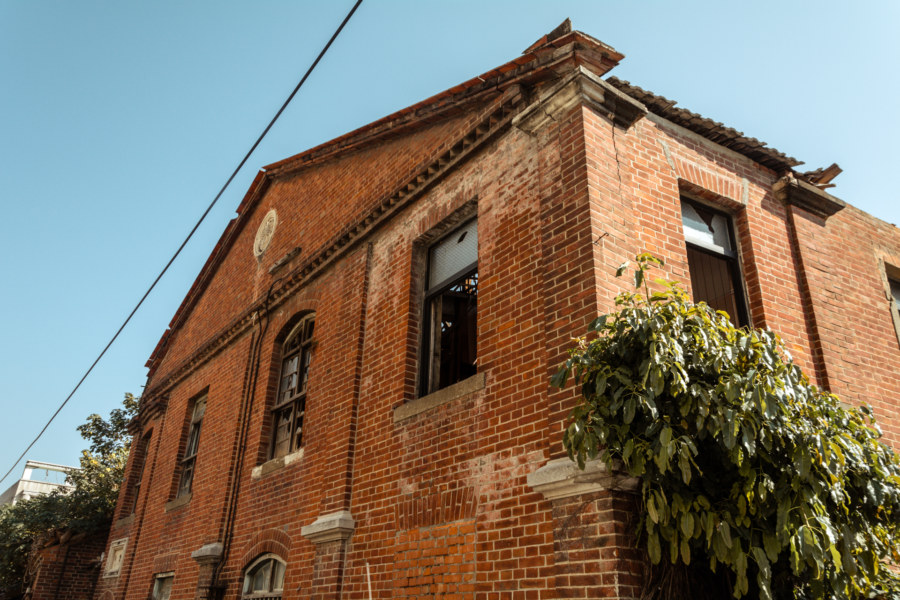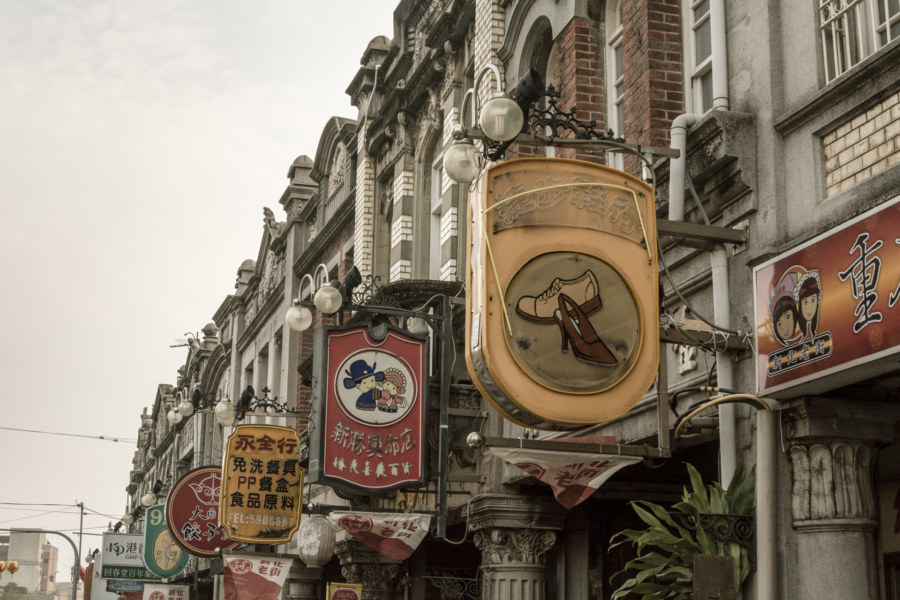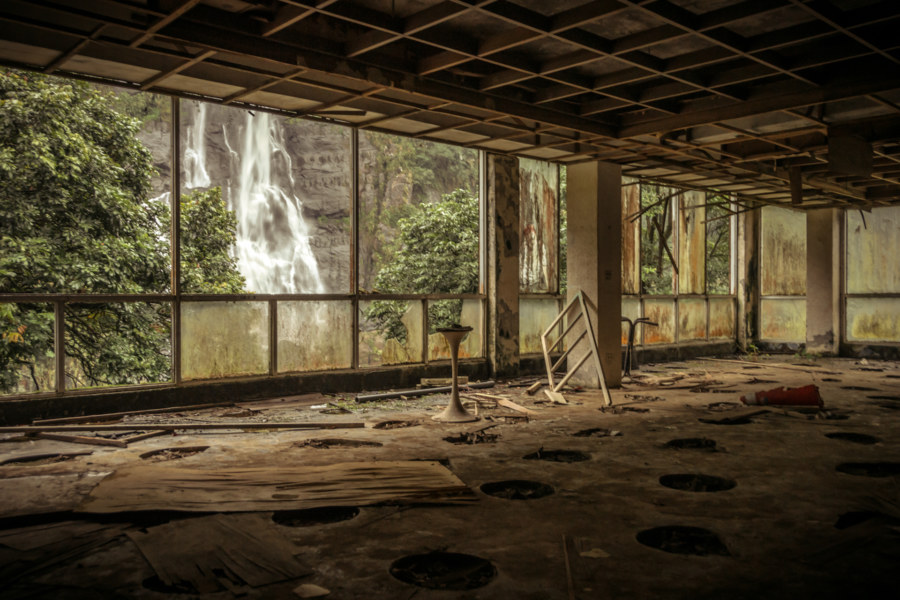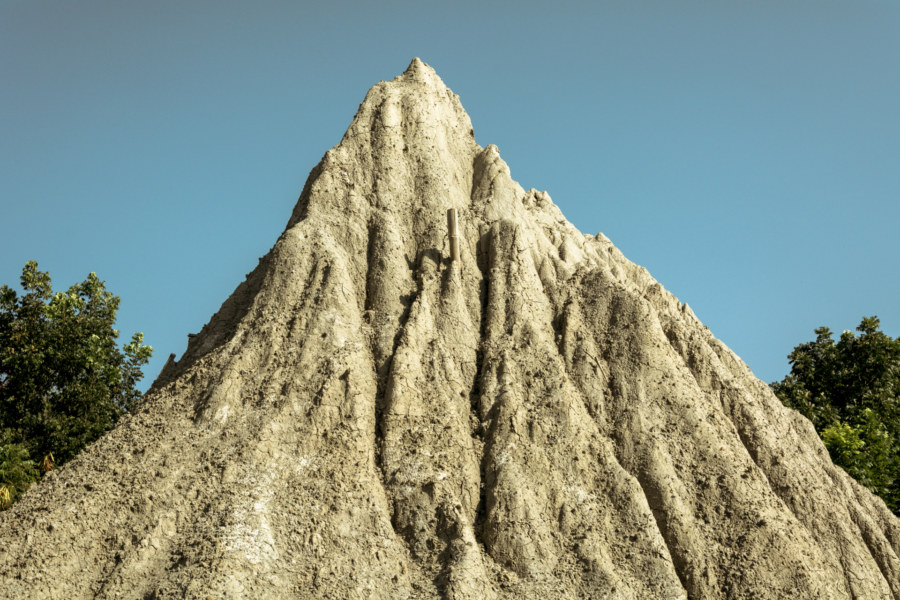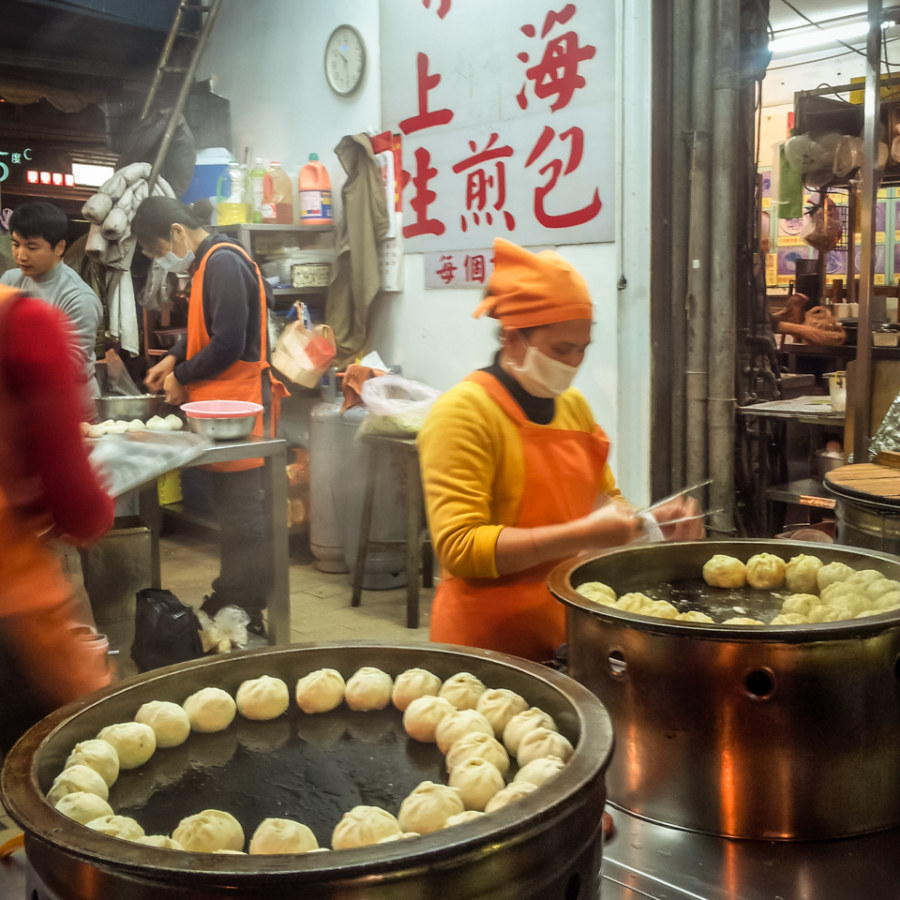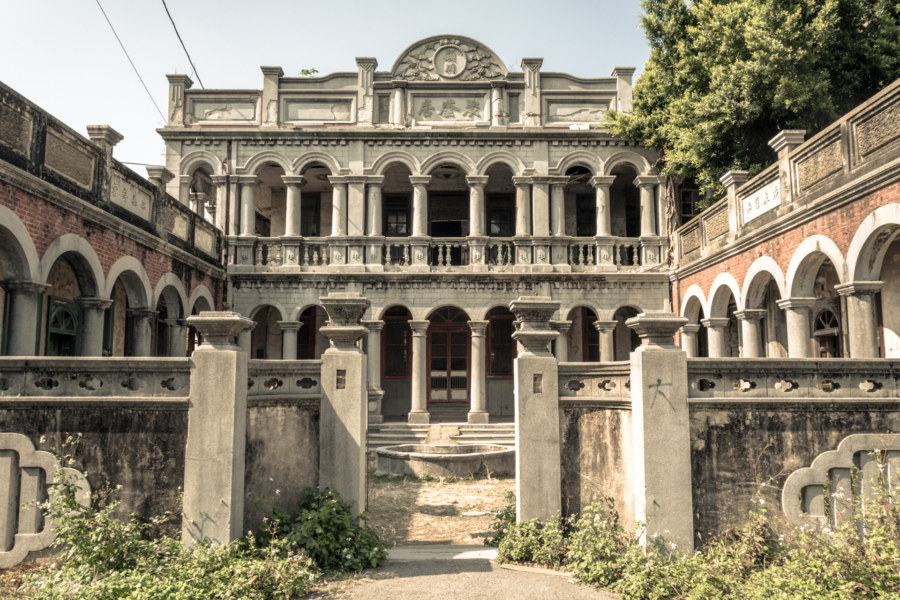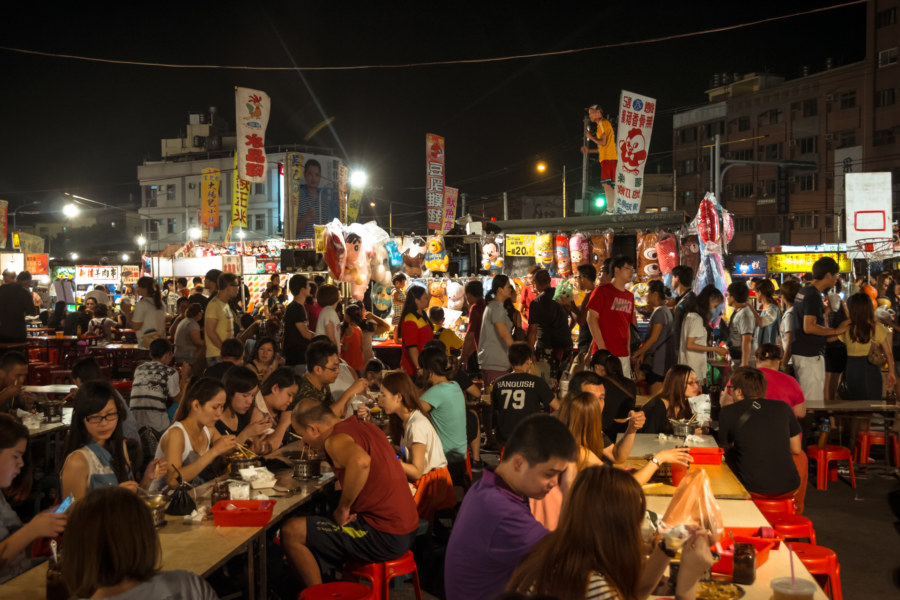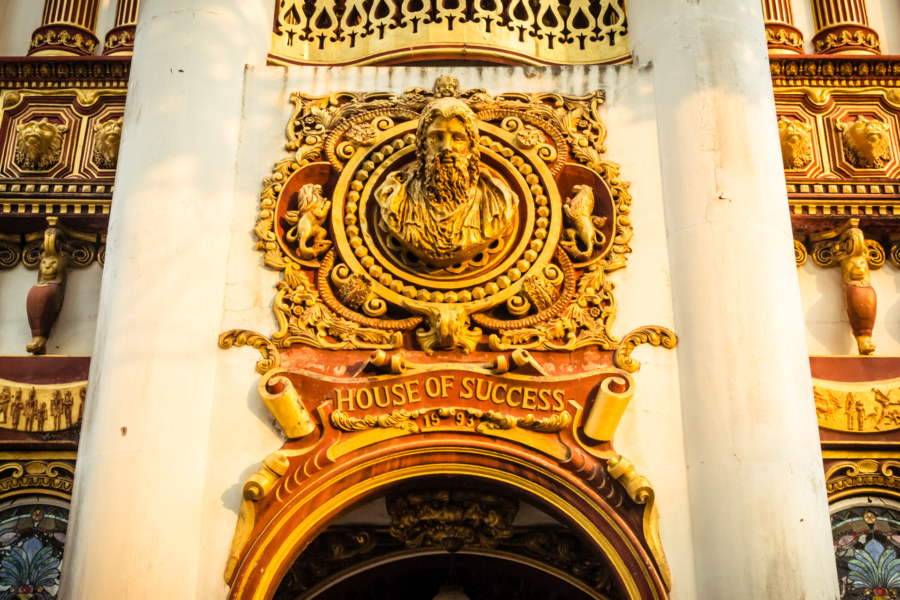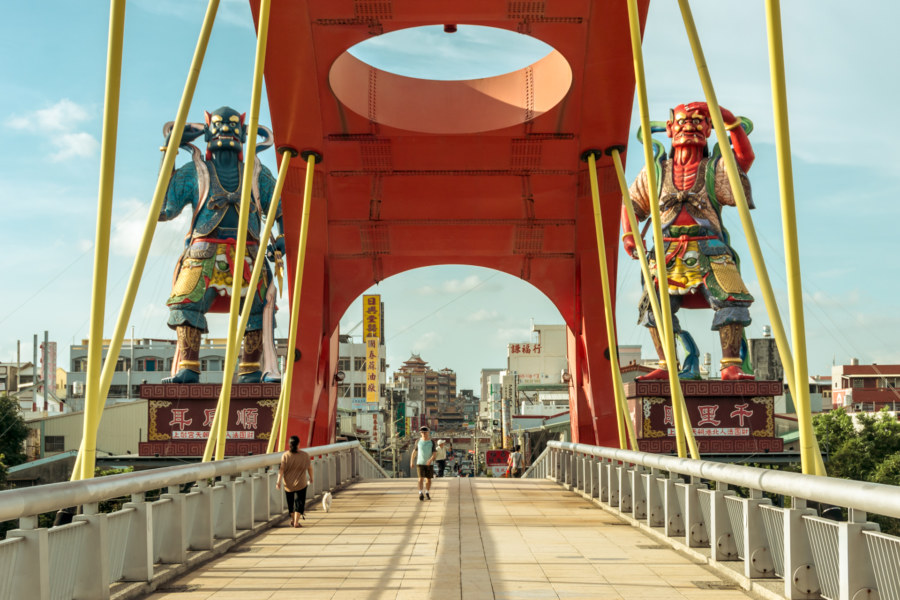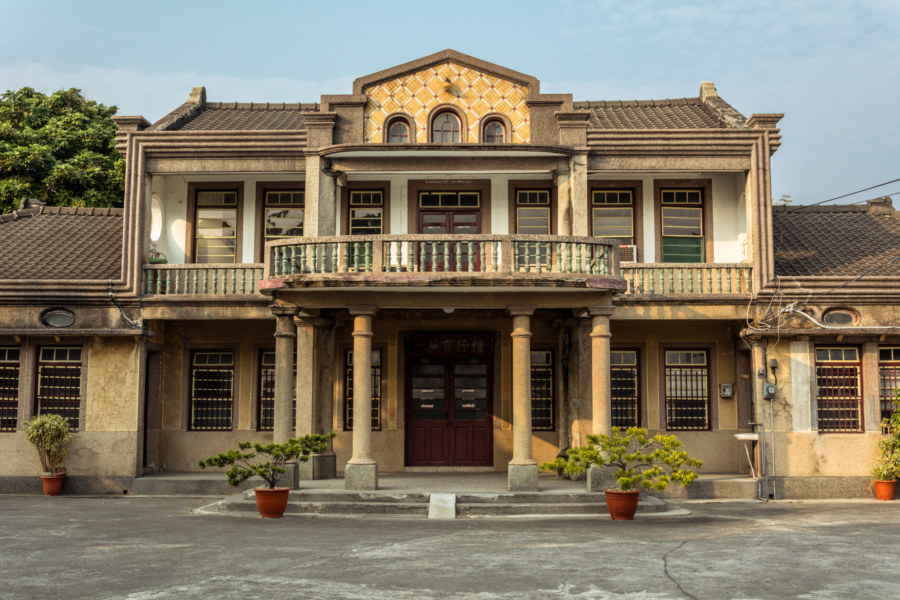During the Japanese colonial era the liquor trade in Taiwan—along with tobacco, camphor, and several other goods—was tightly controlled by a government agency, the Monopoly Bureau. Alcohol was sold exclusively through a network of authorized distributors, many of whom were local Taiwanese who evidently became quite wealthy, as this crumbling yet majestic ruin in the back alleys of Changhua City would suggest. Located along a small laneway just off Mínshēng Road 民生路, this two-story brick mansion was formerly the residence of the local liquor monopoly distributor.
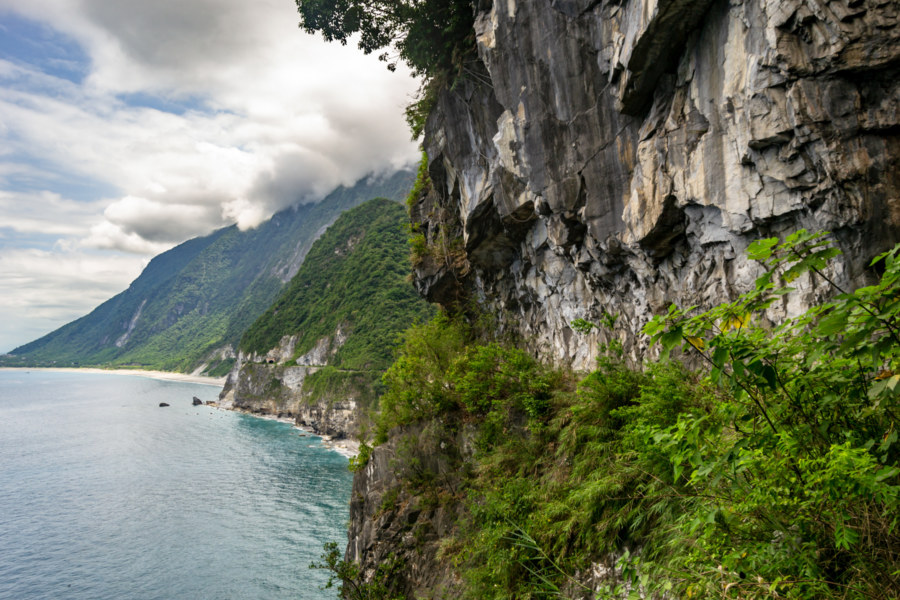
Xinhua Old Street 新化老街
Xinhua Old Street 新化老街 is one of the finest old streets in all Taiwan. Located in Xinhua, Tainan, the street is lined baroque revival and art deco buildings from the Japanese colonial era. Most of the buildings on the western side of the street date back to the 1920s whereas the eastern side features a more modernist style from the late 1930s.
Wulai Qingpu Hotel 清瀑大飯店
While on a day trip to Wulai at the very end of 2013 I was delighted to stumble upon one of the most picturesque abandonments I have had the pleasure of exploring in Taiwan. Mere steps from the southern terminus of the Wulai Sightseeing Tram 烏來觀光台車 one will find a viewing platform across from Wulai Falls 烏來瀑布, one of the most scenic waterfalls in the greater Taipei area. What you might not realize—unless you have a sixth sense for all things abandoned—is that the viewing platform doubles as the rooftop of a derelict hotel with a rather stunning view.
Wushanding Mud Volcano 烏山頂泥火山
Wūshāndǐng Mud Volcano (烏山頂泥火山) is a modest geological curiosity in the hilly badlands of Yanchao, Kaohsiung. It is the largest and most impressive mud volcano field in Taiwan. I first heard about the place through this excellent article by Richard Saunders, who also published an illuminating article about mud volcanoes in the China Post.
Scenes From Everyday Life in Wenshan District
I lived in Wenshan, Taipei, from October 2013 until April 2014 when I moved south to Tainan. In those six months I captured a great many photographs from in around the area, the finest of which were previously shared on this blog in a post about the urban landscape of Wenshan. It was my intention with that post to portray southern Taipei from the vantage point of mountaintops, hillsides, river banks, and pedestrian overpasses, with only a couple of shots from street level. This time around I would like to zoom in and share scenes from everyday life in Wenshan.
Jukuiju 聚奎居
Jùkuíjū 聚奎居 is an abandoned mansion in Wuri, Taichung, built in 1920 by Chén Shàozōng 陳紹宗, a wealthy businessman and landowner. The architecture is a combination of the traditional Taiwanese sānhéyuàn 三合院 (a U-shaped building with three parts surrounding a central courtyard) and the Baroque Revival style of the Japanese colonial era. It is located on the rundown, industrial margins of the city, along an otherwise unremarkable lane next to a military base, looking completely out of place in space and time.
Jingcheng Night Market 精誠夜市
Jīngchéng Night Market 精誠夜市 is perhaps the largest open air night market in Changhua, Taiwan. Unlike some of the other big night markets in the area Jingcheng hasn’t been developed for tourism in the slightest. I doubt you’ll find it in any guidebook and there isn’t anything written about it in English that I have been able to find online. And, to be fair, there isn’t anything special about Jingcheng, particularly not if you’ve been to the fantastic open air night markets of Tainan. Still, if you’re a night market connoisseur like me—or merely interested in trying something different—it might be worthwhile to check out, or you can live vicariously through my photos.
House of Success, Chiang Mai
Mere minutes after setting out from my hotel to explore Chiang Mai I stumbled upon a bizarre building in a mostly empty lot just inside the old city walls. I swear I don’t always go looking for abandoned places—sometimes they find me instead. And in this case I couldn’t very well say no, now could I? I walked up the stairs to take a closer look at this ostentatious ruin, the House of Success.
Postcards From Beigang 北港明信片
Beigang is a historic town on the riverside border between Yunlin and Chiayi in southern Taiwan. I made a brief, unplanned stopover in Beigang while riding north to Changhua in the summer of 2014. I was only vaguely aware of Beigang’s existence, having at some point read something about Cháotiān Temple 朝天宫, one of Taiwan’s most famous Mazu 媽祖 temples, but I had a hunch that there might be more to see—and I was right! If you enjoy visiting traditional towns with a lot of history then Beigang should definitely be on your list.
Huang Sanyuan Residence 黃三元故居
Huáng Sānyuán Residence (黃三元故居) is a beautiful Western-style house located along a country road in Puxin, a rural township in the heart of Changhua, Taiwan. It was built in 1940 by Huáng Yì 黃義, a wealthy employee (and presumably an executive) of the Japanese colonial era Taiwan Sugar Company (台糖公司). If this government source is to be believed Huang Yi had five wives who bore him five sons—and some unknown number of daughters. No wonder he needed such a large house!
